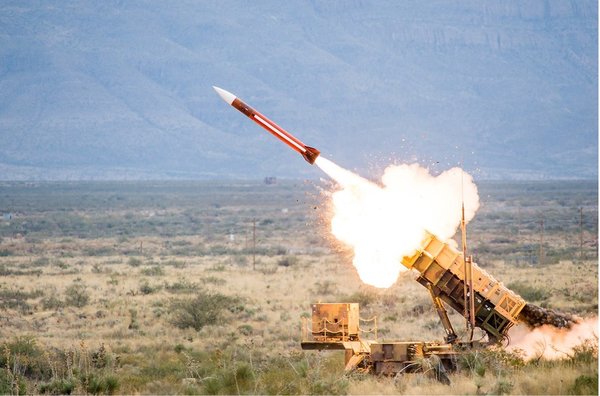Defense companies get the bulk of their revenue from one customer -- the U.S. government. Fortunately, that customer has deep pockets and a long history of paying its bills. The federal government’s stability gives defense companies and investors some predictability when it comes to managing cash and projecting growth.

Companies in the defense sector offer a wide range of products and services to their main customer, and some are better investments than others. Here's what you need to know about investing in the defense sector and how to pick where to put your money.
Top 6 defense stocks to buy in 2024
Top 6 defense stocks to buy in 2024
| Company | Defense Focus |
|---|---|
| Lockheed Martin (NYSE:LMT) | Aviation, space, missiles |
| Boeing (NYSE:BA) | Aircraft, space, helicopters |
| Northrop Grumman (NYSE:NOC) | Nuclear efforts, bombers, space |
| General Dynamics (NYSE:GD) | Shipbuilding, defense IT, tanks |
| RTX (NYSE:RTX) | Electronics, missiles, aerospace components |
| Leidos Holdings (NYSE:LDOS) | Defense IT, space |
Let's look closer at these standout companies.
1. Lockheed Martin
Lockheed Martin is the world's largest defense company and the U.S. government's biggest contractor. It's also the lead contractor on the F-35 Joint Strike Fighter, the world's most expensive airplane.
Lockheed's legendary "Skunk Works" research facility in California is world-renowned. The company has leveraged its research muscle to become a leader in advanced fighter planes, high-tech missiles, and cutting-edge electronics.
2. Boeing
Boeing is best known for its commercial airplanes, but its defense business is large enough to rank among the industry's titans. Boeing makes several aircraft and helicopters for the Pentagon and is involved in space pursuits. The company's defense business has also branched out into autonomous submarines and other products.
3. Northrop Grumman
Northrop Grumman is responsible for stealth bombers and has a large space portfolio. The company is closely tied to the nuclear triad -- a combination of nuclear missiles, bombers, and submarines able to strike back if the nation is attacked.
4. General Dynamics
General Dynamics is one of two primary military shipbuilders and has a portfolio of tanks and land vehicles, making it one of the go-to vendors for the U.S. Army. General Dynamics also has one of the largest defense-focused IT and services businesses, giving it some revenue stability at times when the Pentagon cuts back on equipment purchases.
5. RTX
RTX, formerly Raytheon Technologies, doesn't make warships or fighters. However, it does have a role in a wide range of important military platforms led by other contractors. It is the product of the 2020 merger between Raytheon, a defense electronics and missile specialist, and United Technologies, which makes aircraft engines and various other aerospace parts.
6. Leidos Holdings
Leidos Holdings is the largest government information technology (IT) company. It has also actively expanded into hardware, providing the electronics and brains for autonomous ships and building a strong portfolio of classified research capabilities geared for the intelligence and space communities.
Defense ETFs
Defense ETFs
If you are bullish on defense but would rather not choose among individual companies, you can buy shares in one or more exchange-traded funds (ETFs) that cover the sector. Three primary ETFs are focused on defense:
- Invesco Aerospace & Defense (NYSE:PPA)
- SPDR S&P Aerospace & Defense (NYSE:XAR)
- iShares U.S. Aerospace & Defense (BATS:ITA)
Defense goes electric
Defense goes electric
For most of its history, the defense industry's primary expertise was metal-bending. Only a few companies on Earth could build massive battleships, bombers, and tanks.
But in defense, as in the rest of the world, value is increasingly going not to the companies forging the steel but to the ones providing the brains that go inside it. Defense electronics and cybersecurity are growing portions of almost every company's portfolio. It's where a lot of the internal investment is going right now.
Defense IT also remains a priority, with vendors scrambling to provide the Pentagon with secure networks and data-rich communications systems.
Will conflict move defense stocks?
Will conflict move defense stocks?
The Russian invasion of Ukraine is likely to reverberate throughout the defense sector for years. The move reignited simmering Cold War-era tensions and provided a horrific reminder of the importance of a strong, modernized military.
Defense companies initially traded up when the war started but have given up those gains in the months since. The conflict is likely to add to defense sales in the years to come through the replenishment of weapons sent to Ukraine and as European allies look to strengthen their military muscle.
However, investors must understand that defense projects tend to have multiyear timetables. Any near-term sales boost from the conflict most likely won't be big.
Large defense contractors generate much better margins on research and development (R&D) into new advanced weapons systems than from selling one-off missiles or ammunition.
If the U.S. government were to deemphasize research to fund active operations, the conflict in Europe or elsewhere could actually negatively affect defense stocks. However, given the importance of research, that seems unlikely.
The pandemic's toll
The pandemic took its toll
Defense companies also have complex supply chains, including a need for many semiconductors and other advanced technologies. COVID-19 disrupted supply chains, leading to delivery delays and revenue below forecasts.
The government is a reliable customer. Given time, deliveries should all get sorted out. But it has created a lot of volatility in the stocks in the meantime. The COVID-19 pandemic was also a massive drain on government coffers, making it harder for the Pentagon to aggressively push new spending initiatives that would appear on corporate earnings statements.
Investing in defense companies
Investing in defense companies
The defense sector is more than just weapons used on land, sea, and air. It's defined more broadly to include companies that primarily cater to the Pentagon or other government agencies.
The list includes weapons makers but also service companies that run IT networks, manage inventories, and perform other tasks for government agencies. Defense company strengths include:
- The ability to navigate the Byzantine government procurement process and have thousands of employees with the security clearances necessary to do defense work
- Predictable revenues driven largely by the government's annual provision of a five-year outlook of planned purchases
- Healthy dividend payouts, due in part to some defense companies' R&D being funded by the government -- freeing up cash that can be returned to shareholders
Finding the best defense stocks
How to find the best defense stocks
The defense sector tends to be a stable group of companies with a few failures and a few standouts. Here are some tips to consider when evaluating individual defense companies:
Listen to the customer
The Pentagon has an insatiable appetite for new equipment. But with aircraft carriers costing more than $10 billion and F-35 fighters priced at $80 million or more, there are limits to how much the government can buy. To figure out the likely winners and losers, pay attention to the budgeting process.
Early in the year, the Pentagon sends a funding request to Congress, which then holds hearings to discuss priorities and make final allocation choices throughout the spring and into the summer. An investor need not hang on every word. However, the budget request, available on the Pentagon's website, and commentary elsewhere can provide clues about which billion-dollar programs are administration priorities.
Follow the numbers
Companies often highlight massive contract awards in press releases without explaining that those big dollar figures are often spread out over many years and may depend on Congress approving the funds. Pay attention to these metrics when evaluating defense stocks:
- Free cash flow: This is important for any business, but free cash flow can vary for defense contractors based on whether their projects are new or well established. Companies often spend more in the early stages of a production contract, temporarily depressing cash flow.
- Corporate backlogs: Investors should pay close attention to corporate backlogs, which are future contracts that have been awarded but not yet executed. How much of a backlog has been funded and how much must go through the congressional budgeting process can vary greatly.
- Book-to-bill ratio: This metric compares the value of orders received in a given quarter to the amount billed and indicates a company's growth potential. A growing company should have a book-to-bill ratio of at least 1.0, implying that orders for future products are being booked at a rate that equals or exceeds what is being shipped today.
Defense companies know investors are focused on these metrics and typically make the relevant information available on quarterly earnings reports or conference calls.
Related investing topics
Are defense stocks right for your portfolio?
Defense companies manufacture lethal products and can be involved in supporting clandestine operations or intelligence-gathering that some find unsettling. Some investors don't want to support those activities and should, therefore, avoid becoming shareholders of defense stocks.
Like many industrials, defense stocks tend to be more plodding than high-flying technology or biotech stocks. But that also means they are less volatile than some sectors. Defense stocks are best suited for income-oriented investors seeking steady growth and rising dividends rather than immense valuation increases.
FAQs
Top defense stocks: FAQs
What is the top defense stock?
Lockheed Martin is both the largest pure-play defense company and the one with the most revenue diversity in terms of exposure to different agencies and platforms. Although it doesn't always outperform in the near term, it is the top choice among defense stocks for long-term-focused investors.
Are defense stocks a good buy?
Defense stock valuations tend to be tied to government spending, which can mean periods of underperformance. However, over the long run, defense stocks offer growth rates higher than inflation and steady dividend income, making them a solid choice for investors seeking stability and income in their portfolios.
Do defense stocks rise during war?
Defense stocks tend to jump higher on headlines of a new military conflict but give up some of those gains in the months following. Even if a conflict creates a higher demand for defense equipment, those orders take time to materialize and even longer to fulfill. For that reason, military conflict is not typically an immediate boost to results.











